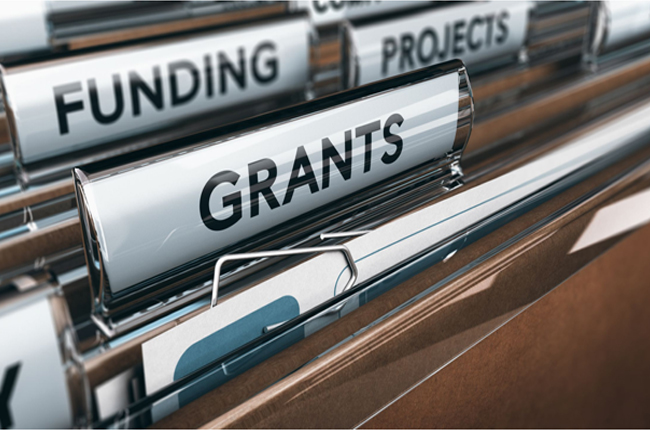
Owning your own house is likely a key desire for you if you’re like most individuals. However, it may be costly to purchase a home, and it can often seem hard to build up enough cash for a down payment. For first-time home purchasers, there are fortunately a number of government programs that provide financial support. You might be shocked to find that there are several government grants programs available to assist you achieve your goal of homeownership. There is probably a grant program that can match your needs, ranging from grants for down payments and closing fees to assistance with monthly mortgage payments. For helpful advice on obtaining government aid for your first house, keep reading.
Look At The Various Government Financing Options
The U.S. Department of Housing and Urban Development (HUD) is a great place to start your research on government financing options for your first home. HUD provides information on their website about the different types of programs available, such as:
-The Good Neighbor Next Door Sales Program
-The Homeownership Voucher Program
-Public Housing Authorities Down Payment Assistance Programs
To learn more specifically about the programs offered in your region, you may also obtain the contact information for the HUD office in your state. You may also check into other federal government organizations that might be able to help, such the Department of Agriculture or the Veterans Administration. For those who qualify, these organizations provide a range of services, including loans, grants, and tax advantages. Make sure to complete your homework so you can benefit from all the potential government financing opportunities for your first house.
Make Sure You’re Eligible For Government Funding
In order to be eligible for the majority of government programs, you must meet specific requirements. For instance, you might have to prove your financial necessity or adhere to certain income requirements. You can also be forced to enroll in a homebuyer education course. Make sure you understand and complete all eligibility standards before applying for financing since the government wants to make sure that its financial support goes to people who will spend it wisely. Additionally, you might have to be a first-time home buyer or have a specific kind of house in mind. You may also learn more about house grants in-depth by visiting firsthomegrants.org
Apply For A Home Equity Line Of Credit To Cover Closing Costs
You could be eligible to apply for a home equity line of credit if you have some home equity built up (HELOC). This may provide you with access to the money you require to pay closing fees and other home-related charges. You should be sure you can afford the payments because a HELOC is a kind of borrowing. A HELOC’s interest payment may also be tax deductible. Additionally, keep in mind that you probably need a strong credit score to be eligible.
Look Into State And Local Programs

Programs are provided by certain states and local governments to assist first-time homebuyers with down payments, closing fees, and other expenditures related to the purchase of a property. It’s crucial to conduct research to find out what could be accessible to you because these programs differ from location to location. You might start by visiting the website of the housing financing organization in your state. By conducting an online search, one may quickly locate these agencies. In addition, several localities offer assistance to first-time homebuyers.
Get a Mortgage With a Low-Down Payment
You could still be able to qualify for a mortgage with a low-down payment if you don’t have the money on hand for a sizable down payment. In actuality, a number of government-backed financing programs accept down payments as low as 3%. Just bear in mind that unless you have enough equity in your house, you’ll probably need to pay private mortgage insurance (PMI) if you choose this course of action. By conducting internet research or speaking with a lender, you may find out more information about these loans. You’ll probably need to have a strong credit score and fulfil certain income restrictions in order to be eligible.
Get a Mortgage Credit Certificate

First-time homebuyers can claim a tax credit for a portion of the mortgage interest they paid over the course of the year by presenting a mortgage credit certificate. If you’re married and filing jointly, the tax credit is worth up to $2000 per year; if you’re single or the head of household, it’s worth $1000 per year. You must get a mortgage from a participating lender and fall within a set range of income to be eligible. With a Mortgage Credit Certificate, your mortgage interest rate is probably going to be higher.
Consider a Home Possible Loan
The Home Possible Loan program is intended to assist borrowers with low and moderate incomes in financing their own residences. There are no income restrictions, but you must have strong credit and adhere to specific underwriting standards in order to qualify. Depending on the type of mortgage you obtain, the required down payment may be as little as three percent. As a result, you can purchase a home with a larger loan-to-value ratio and a lower down payment.
Explore Buying A Fixer-Upper And Applying For Renovation Loans

You may finance the purchase of a fixer-upper and include the cost of improvements in your mortgage thanks to the FHA 203(k) loan, a form of government-backed mortgage. This loan is a good choice for first-time homeowners because it only requires a 3.5% minimum down payment. Additionally, if you satisfy specific criteria, you might avoid paying private mortgage insurance (PMI).
Stick To Your Budget
Before you begin shopping for a home, it is essential to understand how much you can afford. Just though you could be authorized for a mortgage doesn’t imply you should utilize it all, so keep that in mind. It’s crucial to have a manageable monthly payment and limit your housing expenses, such as mortgage payments, insurance premiums, and property taxes, to no more than 30% of your monthly income. Additionally, remember to account for other expenses such as HOA dues and potential repairs and renovations.
Conclusion
To sum up, the above-mentioned ways are great starting points to get government funding for your first home. Just remember to stay within your budget and consult with a professional if needed!
Leave a Reply